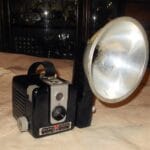Navigating the World of Bulk Rolls
Buying in bulk can be a smart move for businesses and individuals alike. This guide dives into the essentials of purchasing bulk rolls, covering everything from material selection to storage strategies. Whether you’re a seasoned professional or new to bulk buying, you’ll find valuable insights here.
Identifying Your Bulk Roll Needs
Before diving into the world of bulk rolls, it’s crucial to pinpoint your exact requirements. Consider the following:
- Material: What material best suits your needs? Options range from paper and fabric to film and plastics. Each material has its unique properties and applications.
- Dimensions: Determine the required thickness (measured in GSM for paper or caliper for other materials), width, and roll length. Consider your equipment’s compatibility with different core sizes (the diameter of the cardboard tube).
- Application: How will you use the bulk roll? Is it for packaging, printing, crafting, or industrial applications? The intended use will heavily influence your material choices and dimensions.
Understanding Bulk Roll Terminology
Like any specialized field, the world of bulk rolls has its own vocabulary. Familiarizing yourself with these terms will empower you to make informed decisions:
- GSM (Grams per Square Meter): This measures the weight of paper. A higher GSM generally suggests a thicker, more durable material.
- Caliper: This measures the thickness of non-paper materials like films and plastics.
- Core Size: This refers to the diameter of the central cardboard tube. Ensuring compatibility with your equipment is essential.
Sourcing Your Bulk Rolls
Several avenues exist for purchasing bulk rolls, each with its advantages and disadvantages:
- Online Marketplaces: Sites like Amazon and eBay offer vast selections and potentially competitive pricing. However, carefully check reviews and seller ratings as quality can vary.
- Specialized Suppliers: For specific materials or stringent quality requirements, consider a specialized supplier. They offer expert advice and consistent quality.
- Wholesale Retailers: Stores like Costco or Sam’s Club can be viable options for common materials, especially for moderate quantities.
| Bulk Roll Type | Potential Suppliers | Factors to Consider |
|---|---|---|
| Wrapping Paper | Online marketplaces, craft stores | Design, GSM, finish |
| Packaging Materials | Packaging supply companies, online retailers | Level of protection, bubble size |
| Industrial Films | Industrial supply companies | Thickness, application, material properties |
| Printing Paper | Office supply stores, paper distributors | Brightness, weight, printer compatibility |
| Fabric Rolls | Fabric wholesalers, online fabric stores | Material type, width, pattern |
Managing Costs and Finding Savings
Bulk buying often leads to lower per-unit costs due to reduced packaging and shipping expenses. However, don’t solely focus on the lowest price. Quality and supplier reliability are paramount. A slightly higher upfront cost from a reputable supplier might prevent issues like damaged goods or inconsistent materials, saving you money in the long run. Explore potential discounts, volume pricing, and promotional deals. Negotiating, especially for large orders, can often unlock significant savings.
Mastering Bulk Roll Storage
Proper storage is vital for preserving the quality of your bulk rolls. A cool, dry environment away from direct sunlight and moisture is ideal. Temperature fluctuations can damage certain materials.
- Vertical Storage: Preferred for most rolls to prevent squashing and deformation.
- Specialized Racking: Consider investing in racking systems for large or heavy rolls, optimizing organization and accessibility.
Embracing Sustainable Practices
An increasing number of suppliers offer eco-friendly bulk roll options, including recycled or biodegradable materials. Buying in bulk inherently reduces packaging waste compared to purchasing smaller quantities. Explore sustainable alternatives and make environmentally conscious choices.
Unleashing Creative Potential
Bulk rolls offer a wealth of possibilities beyond business and industrial uses. Consider kraft paper for gift wrapping, colorful tissue paper for decorations, or burlap for crafts. Delve into the fascinating world of culinary creations with our guide on aplets and cotlets. Explore a similar, yet distinct, culinary adventure with our exploration of applets & cotlets.
Roll vs. Bap: Unraveling the Great British Bread Roll Debate
The seemingly simple question of “roll” versus “bap” opens a fascinating discussion about regional dialects, baking traditions, and the nuances of bread.
Texture: The Defining Difference
The most noticeable difference lies in texture. Rolls are typically lighter and airier, while baps have a denser, chewier consistency. This chewiness is a hallmark of the bap.
Regional Variations: A Bread Roll by Any Other Name
What constitutes a “roll” varies significantly across the UK. Terms like “cob,” “batch,” and “buttery” are used regionally, adding to the confusion. The term “bap” itself is primarily used in the North East, North West, and Midlands.
A Rich History: The Bap’s Scottish Heritage
Baps have a long history, with Scottish roots dating back to the 16th century. This rich tradition speaks to the enduring popularity of this specific bread.
Beyond the Bun: Bap vs. Burger Bun
While similar, baps often include potato flour, giving them a distinct flavor and texture. They also typically omit the lard found in many commercial burger buns.
Size Matters: The Bap’s Advantage
Baps tend to be larger and rounder than standard rolls, making them ideal for hearty fillings. Their sturdy texture further enhances their versatility.
What Can I Do With a Lot of Rolls? Creative Uses for Excess Toilet Paper, Bread Rolls, and More
Having an abundance of rolls presents both opportunities and challenges. This section explores creative solutions and practical tips for managing surplus rolls of various types.
Cardboard Tubes: From Trash to Treasure
Don’t discard those cardboard tubes! They’re perfect for:
- Kid-Friendly Crafts: Transform them into animals, castles, rockets, and more.
- Desk Organizers: Decorate and arrange them to hold pens, pencils, and supplies.
- Seed Starters: Use them as biodegradable starter pots for seedlings.
- Cord Wranglers: Tame unruly cords and cables.
For those accumulating a large number of tubes, consider bulk buying toilet paper from suppliers like Viking Direct (for businesses) or exploring online marketplaces like Temu (for individuals). Remember that bulk purchases require proper storage.
Leftover Bread Rolls: From Stale to Stellar
Don’t let leftover bread rolls go to waste!
- Freezing: Portion and freeze them for later use.
- Creative Recipes: Transform them into bread pudding, croutons, stuffing, French toast casseroles, or breadcrumbs. Online forums like the MoneySavingExpert forum offer a wealth of ideas.
Till Rolls: Keeping Business Flowing
For businesses using point-of-sale systems, till rolls are indispensable. Common sizes (80x80mm, 57x40mm, 57x30mm) are available from suppliers like Mr. Paper and Trade Till Rolls. Ensure compatibility with your payment platform (Dojo, Worldpay, Just Eat, etc.).
Photographic Film: A Timeless Pursuit
Bulk buying film is common for analog photography enthusiasts. Brands like Ilford, Kodak, and Foma are popular choices. Online communities (like those on Reddit) offer valuable resources.
Bulk Buying and Smart Storage
Bulk buying can be economical, but proper storage is essential.
| Type of Roll | Storage Tips | Potential Uses |
|---|---|---|
| Toilet Paper/Paper Towel Tubes | Dry, airtight container | Crafts, seed starters, cord organizers |
| Bread Rolls | Freezer bags, airtight container | Future meals, bread pudding, croutons, breadcrumbs |
| Till Rolls | Cool, dry place, original packaging | Point-of-sale systems |
| Photographic Film | Cool, dry place, light-tight container | Analog photography |
| Bulk Rolls (General) | Vertical racks, cool, dry place | Varies depending on material |
Remember that storage requirements vary depending on the material. Check manufacturer recommendations. While a cool, dry environment is generally recommended, ongoing research may lead to more efficient and sustainable storage solutions in the future.
What is a Centrefeed Roll? A Complete Guide to Uses, Types, and Benefits
Centrefeed rolls are large paper towel rolls dispensed from a central core, providing a convenient and efficient solution for various wiping and cleaning tasks.
Understanding Centrefeed Roll Types
- Ply: Refers to the number of paper layers. 1-ply is economical, 2-ply offers a balance of cost and performance, and 3-ply provides maximum absorbency and strength.
- Length/Sheets: Choose a roll size that aligns with your usage frequency and storage capacity.
- Color: White is common, while blue is often used in food preparation for easy identification of stray fragments.
- Embossing: Improves absorbency and adds a touch of quality.
Where Centrefeed Rolls Shine
- Kitchens: Ideal for wiping counters, cleaning spills, and drying hands.
- Workshops/Garages: Effective for cleaning tools, equipment, and dealing with grease and grime.
- Healthcare: Provide a sanitary solution for cleaning and wiping.
- Offices: Handy for spills, desk cleaning, and general maintenance.
Centrefeed vs. Jumbo Roll
| Feature | Centrefeed Roll | Jumbo Roll |
|---|---|---|
| Size | Smaller and more compact | Larger and bulkier |
| Capacity | Lower capacity | Higher capacity |
| Dispensing | Smaller dispenser | Larger, specialized dispenser |
| Applications | Various settings | High-traffic areas |
| Storage | Easier to store | Needs ample space |
Dispensers and Cost Savings
A compatible dispenser is essential for controlled dispensing and waste reduction. Centrefeed rolls offer significant cost savings compared to traditional paper towels, especially in high-usage environments. Ongoing research focuses on material improvements and sustainability, and future studies might explore more efficient dispensing methods and specialized applications.
- Discover Long Black Pepper: Flavor & Health Benefits - April 25, 2025
- Shocking Twists: The Grownup Review: Unreliable Narration - April 25, 2025
- A Quiet Place Book vs Movie: A Deep Dive - April 25, 2025















